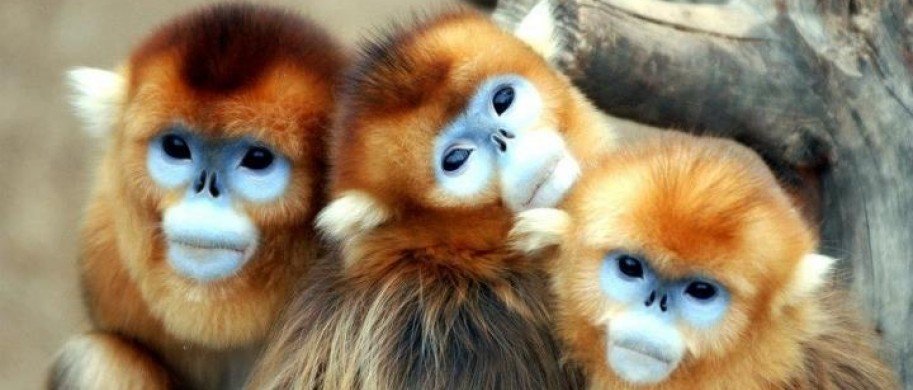
The Yunnan snub-nosed monkey is the most endangered of China's three snub-nosed monkey species. The long, shaggy coat is mainly black on the back, arms and legs and white on the front. White hair is also present on the flanks and this is particularly long on the adult males. The lips are a deep pink, whilst the face is paler and there are yellowish-grey hairs on the shoulders. These monkeys get their common name for their unusual noses; the nasal bones are absent and the nostrils are upturned. Young ones are born white but become grey over several months.
Very little is known about these elusive monkeys, and the first comprehensive study of their ecology and behaviour only took place in the 1990s. Found in the Yunling (Yun Ridge) Mountains in south-western China, only 17 groups with a total population of less than 1,700 animals have survived in northwest Yunnan and neighbouring regions in the Autonomous Prefecture of Tibet. Group size is small, typically only 20 to 60; groups of over 100 have never been observed. The territory of each group varies from 20 to 135 square km.
Yunnan snub-nosed monkeys are found at a higher altitude than any other primate, with the exception of man. They inhabit coniferous forest, which is found between 3,000 and 4,500 metres above sea level and experiences frost for around 280 days of the year; snow to a depth of over one metre can accumulate.
Size
Head-body length: 51-83 cm
Tail length: 52–75 cm
Male weight: 15–17 kg
Female weight: 9.2–12 kg
Status
Classified as Endangered (EN) on the IUCN Red List 2007, and listed on Appendix I of CITES.

Conservation vs. Developement and Tourism
The Government of China banned the hunting of snub-nosed monkeys in 1975, although this has proven difficult to enforce. Around half the population of the Yunnan snub-nosed monkey occurs within protected reserves such as Baima Snow Mountain Nature Reserve where wardens are trying to work closely with the local people to secure the future of this species. In 1998, a national logging ban on all remaining old-growth forests came into force, which will help to preserve some of the monkey's precious habitat. Yunnan snub-nosed monkeys are a vital part of the mountain ecosystem, preventing the accumulation of lichen in these ancient forests of the foothills of the Himalayas.
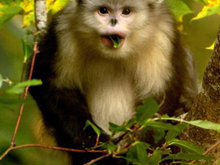 |
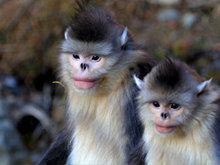 |
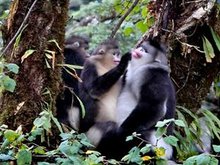 |
Recognizing the need for drastic action to protect the Yunnan snub-nosed monkey, the government and other partners launched a program to protect this legendary species and save the best primary forests in an area of the Three Parallel Rivers, the famous world heritage site, that's sandwiched between The Yangtze River and The Mekong River. The two biggest reservations in Yunnan Province are Laojun Mountain National Park which is under the jurisdiction of Lijiang and close to Liming, and Yunnan Snub-nosed Monkey National Park in Weixi County which is under the jurisdiction of Shangri-La.
Sustainable tourism is possible but needs its strict rules and regulations. Our tour leads you to above mentioned reservations and directly supports the local infrastructure and the monkey's protection.
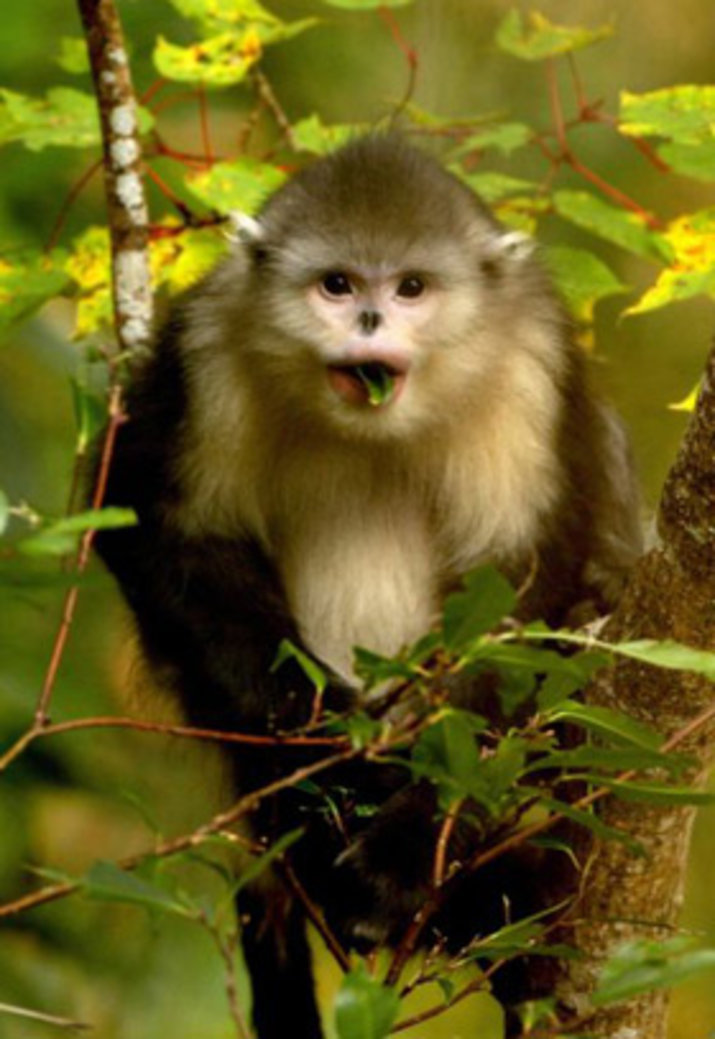
Further information on these wonderful animals can be found here.
If you want your tours being specialized on ecotourism please also visit the website of Lijiang Xintuo Ecotourism.
- 1536 reads
